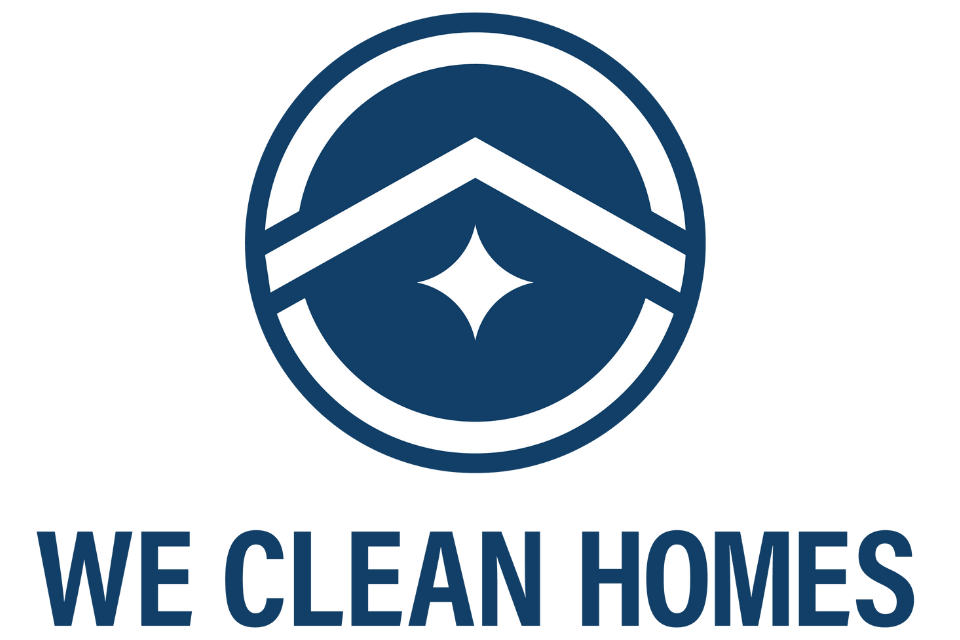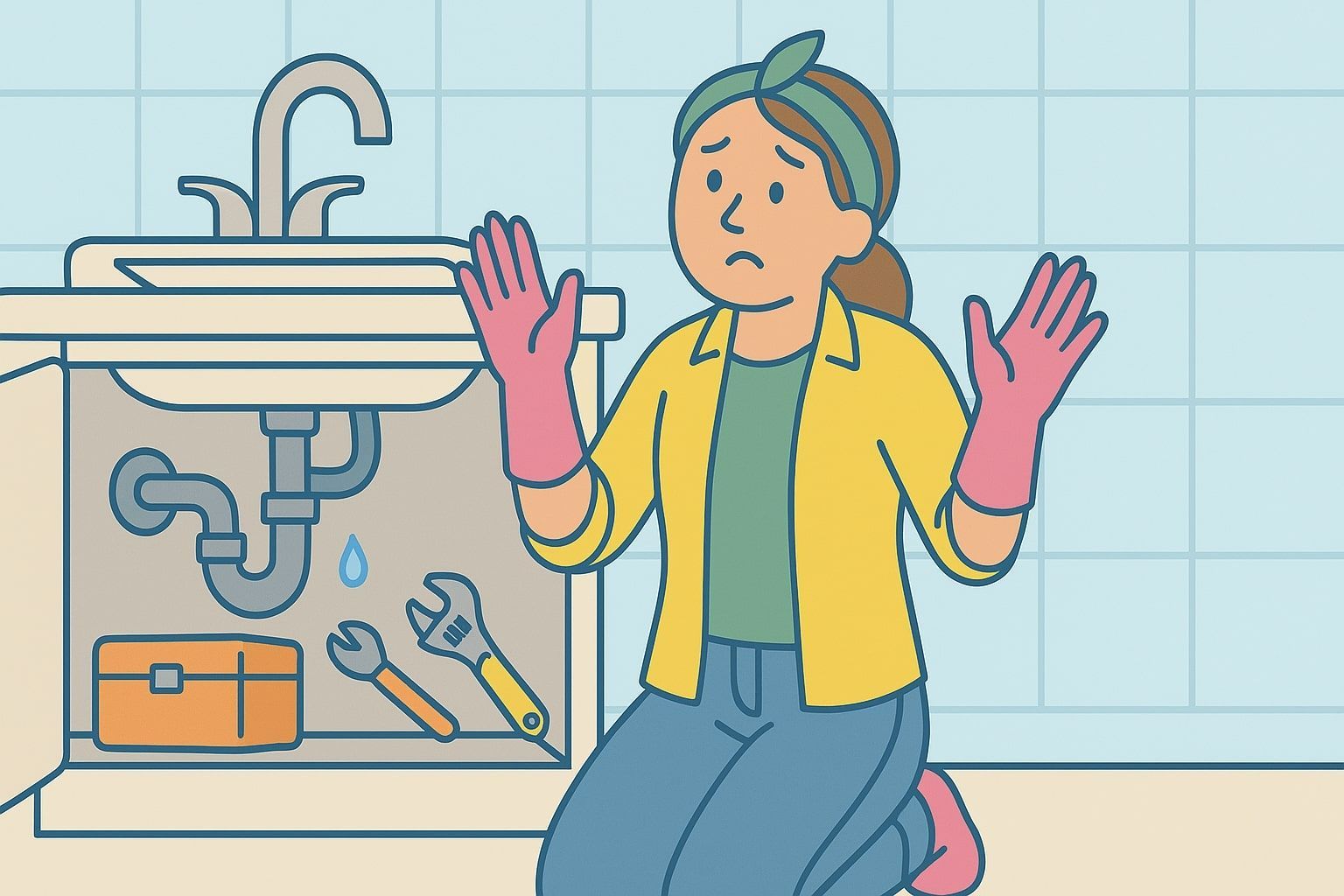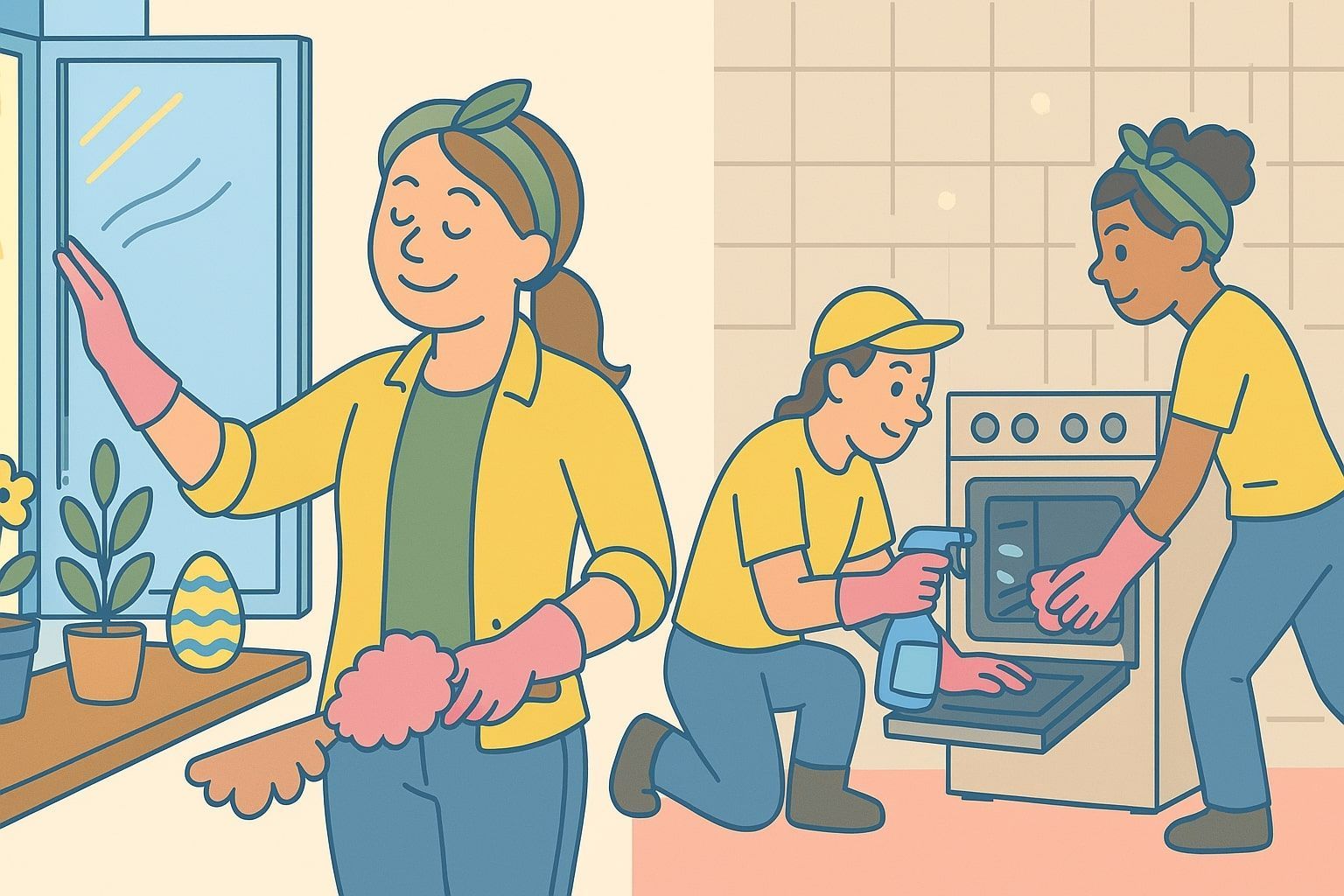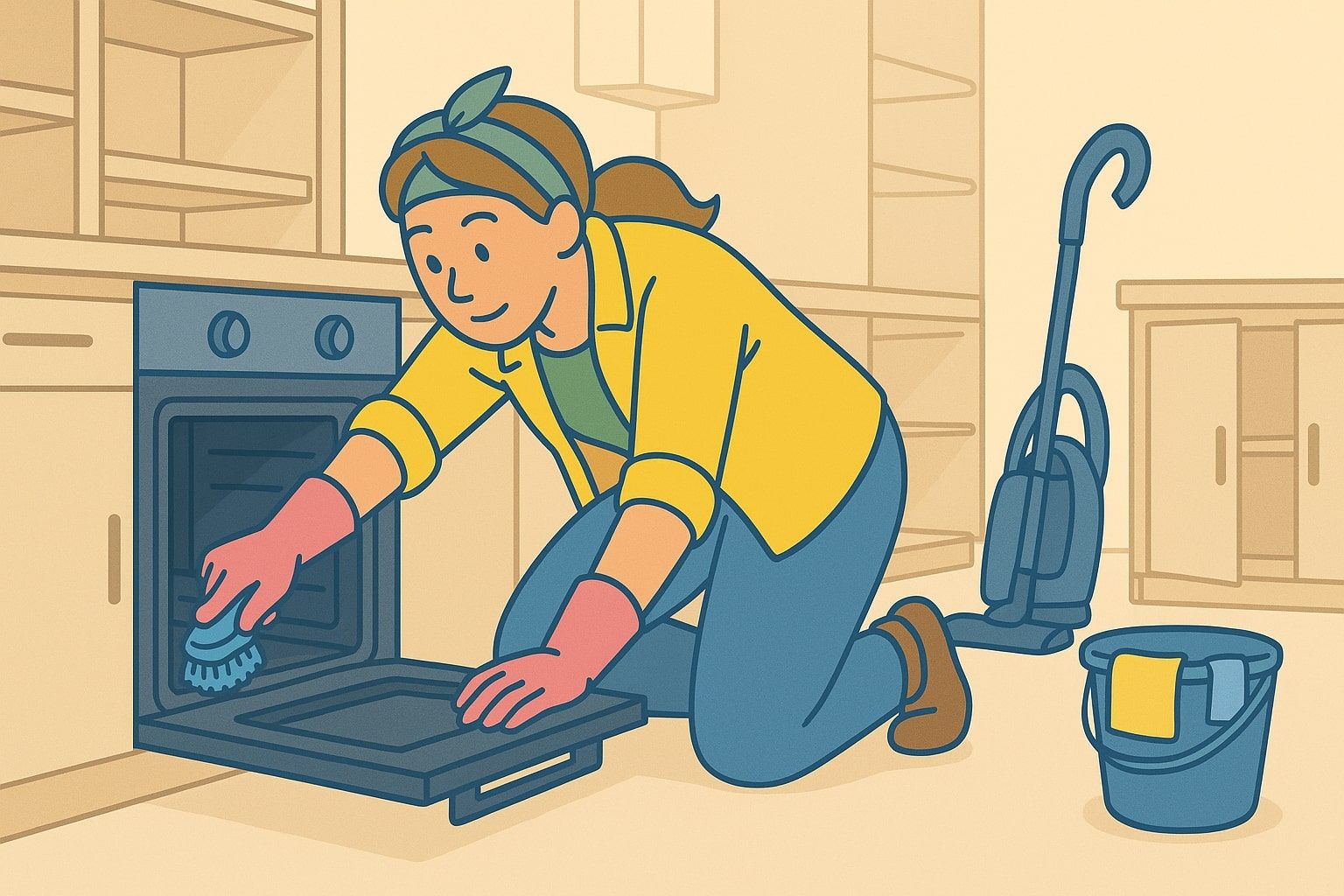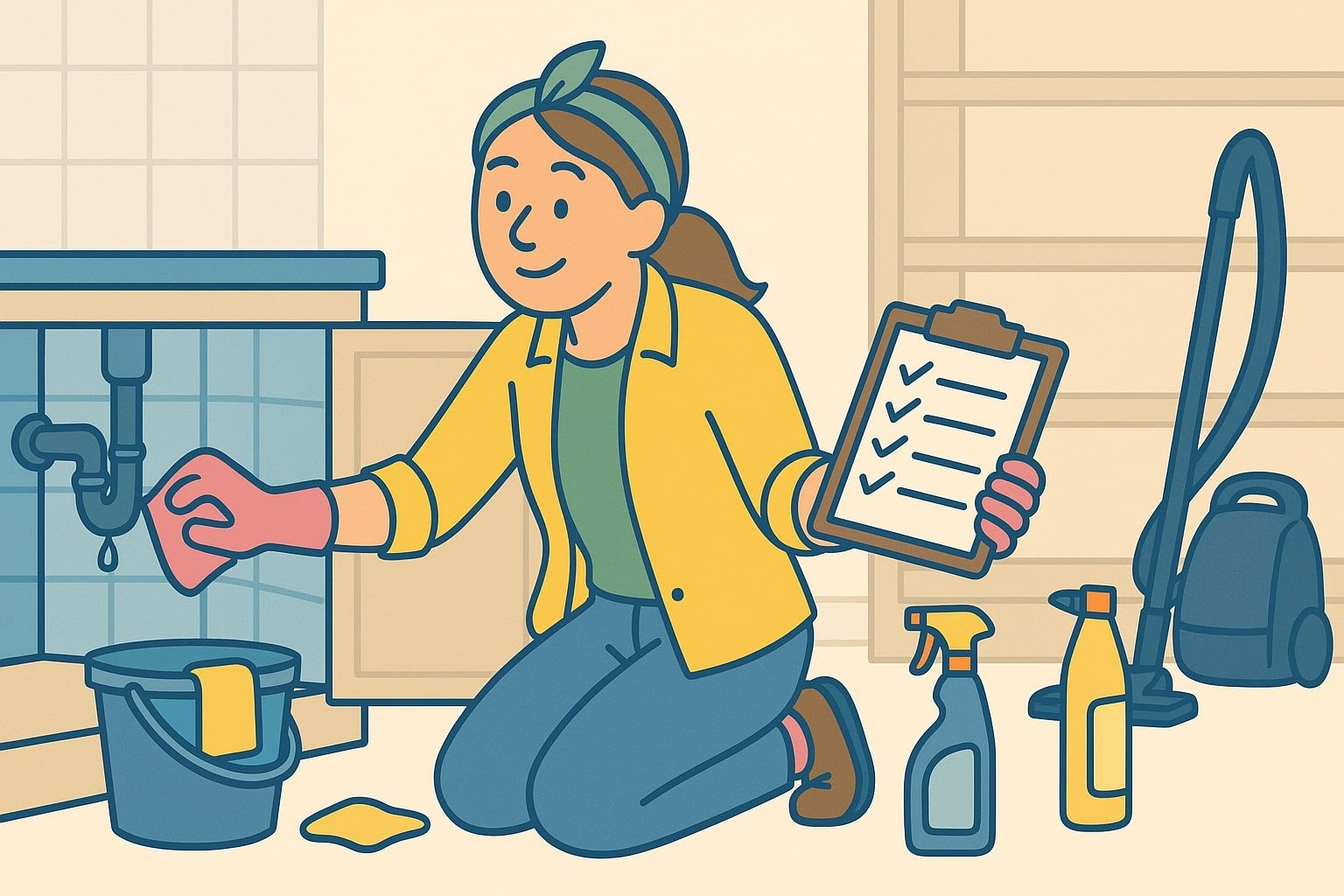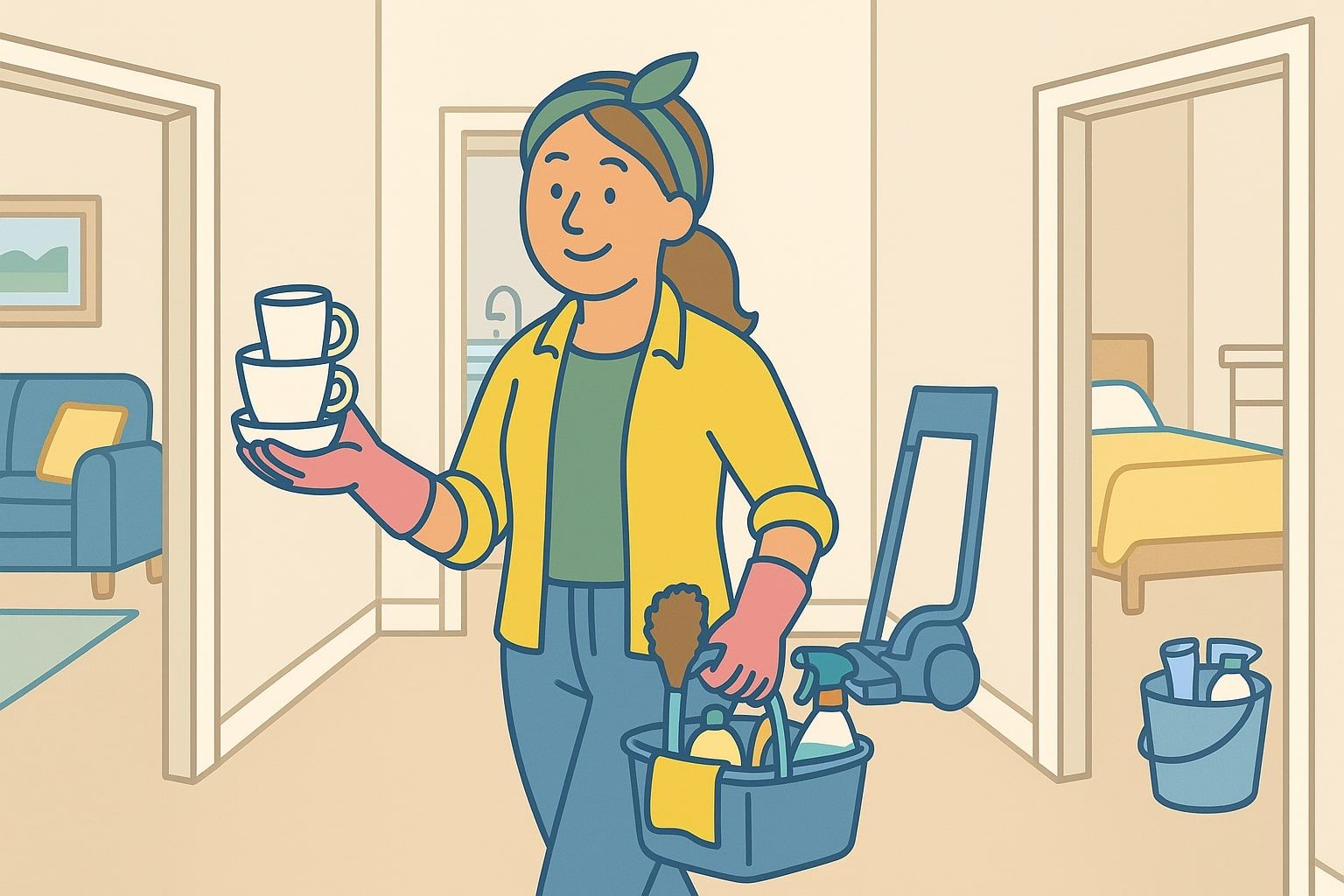Discover the unparalleled quality and exceptional customer satisfaction that sets We Clean Homes apart on its journey to becoming the premier home cleaning service in the UK. Request a quote today and experience the difference Michael Shaw, the visionary founder and managing director, is making in redefining industry standards.
What’s the Difference Between Domestic Cleaning and Housekeeping?
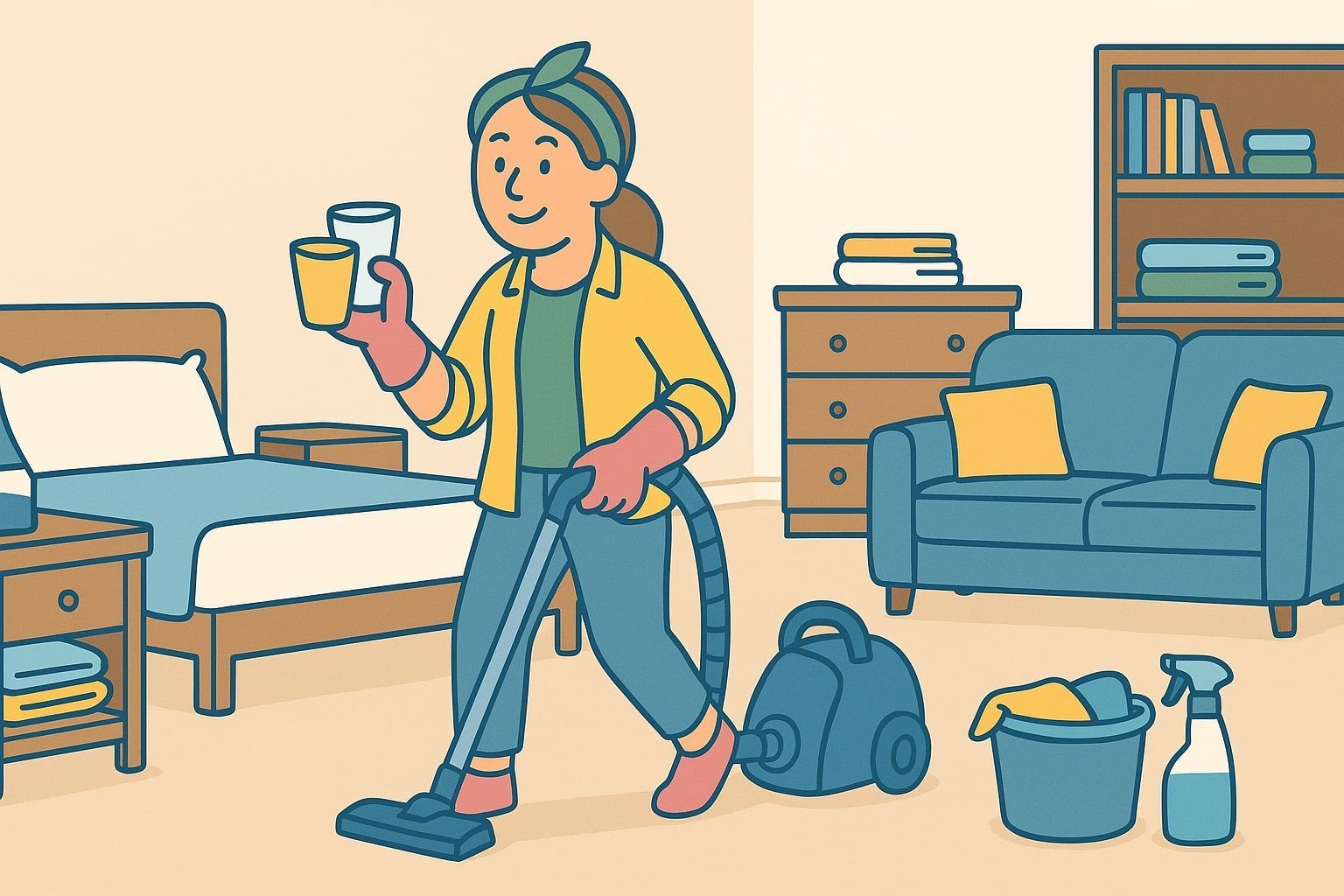
Many people use the terms domestic cleaning and housekeeping as if they mean the same thing. While both offer valuable support in keeping a home running smoothly, the services differ in scope, frequency, and purpose. Understanding the distinction helps you choose the right type of help for your household, whether you’re looking for routine cleaning, broader home management, or a mixture of both.
This guide breaks down the key differences in an easy-to-understand way, covering duties, expectations, pricing, and who each service suits. By the end, you’ll know exactly which option aligns with your lifestyle, your home, and the level of support you need.
What Is Domestic Cleaning?
Domestic cleaning focuses on the routine tasks needed to keep a home clean, hygienic, and comfortable. These are the everyday or weekly jobs that prevent mess and dirt building up over time.
Domestic cleaning usually includes:
- Vacuuming carpets
- Mopping hard floors
- Dusting and wiping surfaces
- Cleaning bathrooms and toilets
- Cleaning kitchen surfaces, sinks, and hobs
- Emptying bins
- General tidying as specified
For many households in the UK, this type of cleaning happens weekly or fortnightly, often with a consistent cleaner who knows the home well. Most domestic cleaners work from a standard task list but can adapt their routine within reason.
If you’re not sure whether this level of support suits your needs, it can help to understand what domestic house cleaning involves, as this provides a clear baseline for the type of tasks that fall under routine cleaning.
What Is Housekeeping?
Housekeeping goes beyond cleaning. It includes a wider range of household tasks designed to keep the home organised, tidy, and running smoothly. Housekeepers often take on a more active role in day-to-day home management.
Housekeeping may include:
- All regular cleaning tasks
- Laundry
- Ironing
- Changing bedding
- Organising cupboards, drawers, and rooms
- Washing dishes or loading/unloading the dishwasher
- Running errands (on request)
- Meal prep or simple cooking (depending on the service)
- Decluttering
- Light household administration
Housekeeping is more personalised and tends to suit households that want continuous support rather than occasional cleaning. Housekeepers may visit daily, several times a week, or even live in, depending on the home’s needs.
Where domestic cleaning focuses on hygiene, housekeeping focuses on lifestyle and ease of living.
Domestic Cleaning vs Housekeeping: The Key Differences
Although domestic cleaning and housekeeping overlap in some areas, several core differences help make the distinction clear.
1. Scope of Work
Domestic cleaning
- Focuses on cleaning tasks
- Aims to maintain hygiene and general tidiness
- Works from a defined task list
Housekeeping
- Covers cleaning plus household management
- Tasks can vary from day to day
- Often includes laundry, ironing, organisation, errands, and help with daily routines
2. Frequency
Domestic cleaning normally takes place weekly or fortnightly. Housekeeping, meanwhile, can range from weekly to daily support, depending on the client’s needs.
3. Personalisation
Domestic cleaning is fairly structured: you generally know exactly what will be done each visit.
Housekeeping is much more flexible. The housekeeper may prioritise different tasks depending on what the home needs that day—for example, focusing on laundry one day and kitchen organisation the next.
4. Cost
Because housekeeping includes more tasks and often requires more time, it is generally more expensive than domestic cleaning. Some housekeepers also charge higher rates due to the broader level of responsibility.
5. Skill and Responsibility Level
Domestic cleaners work efficiently through cleaning tasks but are not typically responsible for wider household management.
Housekeepers often need strong organisational skills, the ability to plan routines, and sometimes experience in managing larger or busier homes.
Examples of Domestic Cleaning Tasks vs Housekeeping Tasks
Domestic Cleaning Tasks
- Vacuuming
- Mopping
- Dusting
- Bathroom cleaning
- Kitchen surface cleaning
- Wiping skirting boards
- Inside windows (optional)
Housekeeping Tasks
- Laundry and ironing
- Making and changing beds
- Putting away clothes
- Decluttering children’s rooms
- Restocking household items
- Light meal preparation
- Tidying shared spaces
- Managing daily household routines
How to Tell Which Service You Need
Many households benefit from domestic cleaning. Others need a more comprehensive service. Here’s a simple checklist to help you decide.
Domestic Cleaning May Be Right If:
- You mainly need help keeping the home clean
- Your biggest priorities are hygiene and maintenance
- You want weekly or fortnightly support
- You prefer a simple, predictable task list
- You don’t need help with laundry, organisation, or home management
Housekeeping May Be Right If:
- You want help beyond cleaning
- You need daily or frequent support
- You have a busy home with children or pets
- You want someone to manage laundry, changing beds, or tidying
- You prefer a flexible service that adapts to your household’s routines
How Domestic Cleaning Fits Into Other Types of Cleaning
Domestic cleaning is part of a wider range of home cleaning services. It sits between light maintenance cleaning and more intensive one-off work.
For example, understanding the difference between regular and deep cleaning helps you know when routine domestic cleaning is enough and when your home might need a more thorough top-to-bottom approach. Many households choose both: regular domestic cleaning and a deep clean once or twice a year.
Realistic Expectations: What Domestic Cleaners Typically Achieve
Domestic cleaners usually work within a set timeframe—often one, two, or three hours per visit. The amount they can achieve depends on the size of the property, how tidy it is, and how frequently it’s cleaned.
If you’re unsure what’s realistic, it’s helpful to look at what a cleaner can do in a two-hour visit, as this offers a practical reference point for most UK homes. This type of information is especially useful for setting expectations and planning your cleaning schedule.
Pros and Cons of Domestic Cleaning and Housekeeping
Domestic Cleaning: Pros
- Cost-effective
- Straightforward and predictable
- Keeps the home hygienic
- Ideal for smaller or average-sized homes
Domestic Cleaning: Cons
- Doesn’t usually include laundry or home organisation
- Less flexible compared to housekeeping
Housekeeping: Pros
- Highly personalised support
- Helps with all aspects of home management
- Ideal for larger or busier households
- Reduces daily workload significantly
Housekeeping: Cons
- Higher cost
- Requires clear communication and trust
- Not everyone needs this level of support
How to Choose the Right Provider
Whether you choose domestic cleaning or housekeeping, the following points help ensure you get a reliable, high-quality service.
Checklist for Choosing a Cleaner or Housekeeper
- Do they have references or reviews?
- Are they insured?
- Do they bring their own cleaning products or use yours?
- Can they tailor the service to your home?
- Do they offer a consistent schedule?
- Is pricing clear and transparent?
- Are they willing to discuss expectations before starting?
Clear communication is key. Before the first visit, agree on the tasks, priorities, and frequency. This helps prevent misunderstandings and ensures you get maximum value from the service.
Summary
Domestic cleaning and housekeeping are both valuable forms of support, but they serve different purposes.
- Domestic cleaning keeps your home clean and hygienic with routine tasks like vacuuming, bathrooms, floors, and surfaces.
- Housekeeping provides broader home management, helping with laundry, tidying, organisation, errands, and daily household routines.
The right choice depends on the size of your home, your lifestyle, and the level of support you want. With a clear understanding of each service, you can easily select the option that best meets your household’s needs and helps you maintain a comfortable, organised, and stress-free home.
